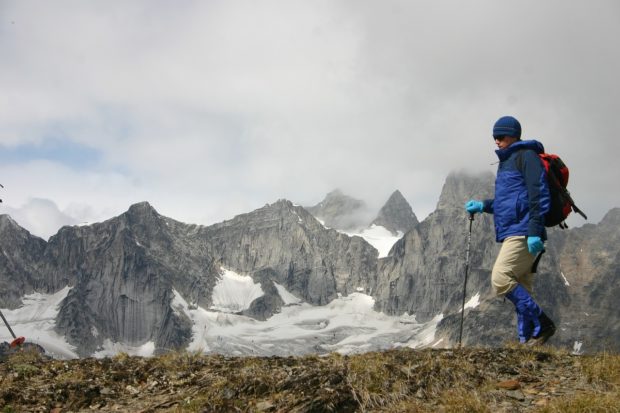Hiking is a fun, healthy, and exciting activity to do with your family, friends, or even solo. But to ensure that you have an enjoyable time, it’s essential to make sure you are wearing the appropriate attire. An otherwise fantastic hiking trip can be ruined by shoes that give you blisters or when it suddenly starts downpouring, and you’ve forgotten your rain gear at home.
Making sure you are prepared with the appropriate clothing and gear is about more than just your comfort on the hike. It is also a matter of safety. Weather can change suddenly and rapidly in the mountains, and being stuck with the wrong layers could result in severe health conditions like hypothermia or hyperthermia.

This guide is here to demystify how to dress for a hiking excursion. It will cover the basics and essentials of what to wear hiking in the spring, summer, fall, and winter. Read on to learn more!
Moisture-wicking layers
No matter what season you’re in, it’s crucial to dress in layers made of moisture-wicking material. Cotton is your biggest enemy on the trails because of its ability to hold onto moisture and stay wet for a long time. If you sweat or get rained on wearing cotton clothing, you will be damp and uncomfortable for the duration of your hike.

The best materials to look for are Merino wool or synthetic polyester, like many of the offerings from Appalachian gear. Dressing in layers is essential in all seasons. If you are hiking in the mountains, the climate will be vastly different at the summit than at the bottom. If all you have on is shorts and a t-shirt, you are going to be very chilly when you reach the cold and windy peak.
Loose-fitting hiking pants are ideal for wearing on your bottom half. At the top, you will want to carry a few different options, including a short sleeve shirt, long-sleeve shirt, and rain jacket. In colder seasons, you will need warmer options that have thicker insulation, like fleece or wool. Layering is essential for making adjustments along the hike and having options at your disposal.

Supportive footwear
Your shoes are one of the essential items of gear to secure before any hiking trip. Depending on your budget and the length and terrain of your excursion, you may be able to get away with supportive sneakers or trail running shoes.
The best option for serious hikers and those who may need extra support is mid-rise hiking boots. These are made of thicker material with heavy soles that protect your feet from dangers on the trail, like rocks, roots, and branches. The ankle support is key to helping you prevent rolling your ankles on these obstacles.
Additionally, many hiking boots are at least water-resistant, and many are waterproof, meaning that your feet will stay dry and comfortable even if you cross over a river or get caught in the rain.
Final thoughts
As long as you’re dressed for the activity and the weather, your hiking trip is sure to be an enjoyable and exciting time. Grab your gear and hit the trails.
